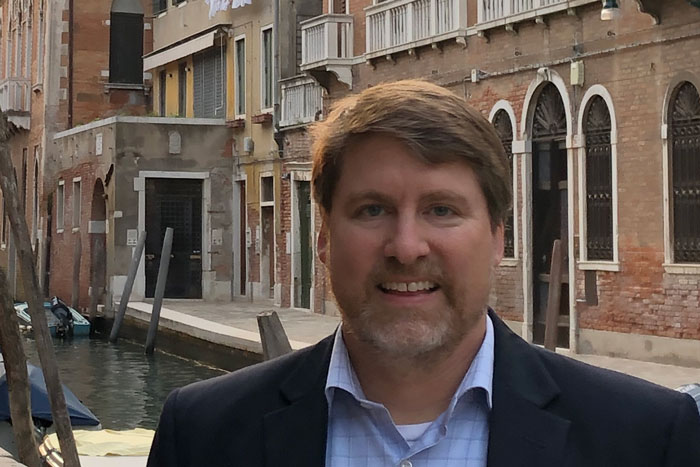Professor Andy Wolff Wins Fulbright NATO Security Studies Award

Dickinson's Fulbright success continues, with European research and teaching award
by Tony Moore
Dickinson has a long history of Fulbright success, and it’s never been limited to students. Now, Associate Professor of Political Science and International Studies Andy Wolff becomes the latest recipient, as he’s been named the fall 2020 recipient of the Fulbright NATO Security Studies award to Belgium.
Wolff’s project, Complex Security Governance in Europe, investigates how European security is managed in a complex and multilevel governance environment, and another facet of the Fulbright award will have Wolff teaching a graduate course at the College of Europe in Bruges, Belgium.
“I look forward to learning in more granular detail about the struggles of European security integration and about the global perspective of politicians and bureaucrats working in Brussels,” says Wolff, who has lived in Europe for two years while serving as the director of Dickinson’s European studies program in Bologna. “And I’m keen to hear the opinions and outlooks of the graduate students at the College of Europe, many of whom are up-and-coming leaders on the continent. Getting to know how Europeans view the world will enrich both my research and teaching.”
Wolff’s Fulbright research looks to determine the conditions in which national governmental actors, the European Union’s Common Foreign & Security Policy, NATO and the Organization for Security and Cooperation in Europe interact and collectively decide which security forum is best for authorizing operations, altering defense strategies and crafting new policy initiatives.
“This is an exciting time to be able to foster greater transatlantic relations,” says Wolff, adding that his research will use as case studies such crises as those in Libya and the Ukraine as well as counterterrorism and cyber policy. “I find that many Europeans want to know more about the profound political, social and cultural changes occurring in the United States and are eager to talk about the political shifts and economic problems confronting Europe. The multiple tensions within the transatlantic community provide opportunities for deep and meaningful exchanges of viewpoints.”
TAKE THE NEXT STEPS
Published April 13, 2020